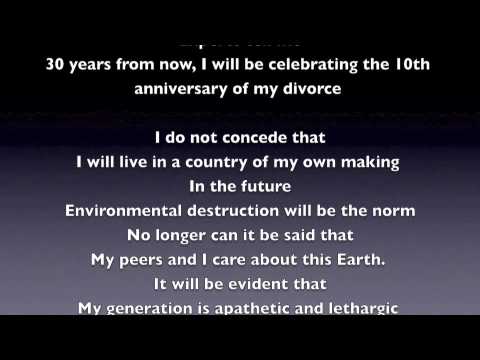邦訳に対する批判に関して
葉っぱのフレディーは日本でも大ベストセラーになっていますが、日本語版の訳(みらいなな氏の翻訳)は意訳とは呼べないレベルの改変があると指摘するウェブサイトがありました(今探しても見つかりませんでした)。そこでの指摘を読むと確かにそのように自分も思いました。誤訳なのか意図的な改変なのかはわかりませんが、かなり印象が変わってしまっていると思います。そのため、邦訳を読んで「葉っぱのフレディー」に感動するのは、ちょっと違うと思って原文を改めて読んでみることにしました。日本語の葉っぱのフレディーとは異なり、原文はもっと「そのまま」です。死をまっすぐ受け止めているように自分には感じられました。邦訳と原書の違いは、死生観にかかわる最も核心の部分なので、是非、原書を読んでいただきたいと思います。
死について
フレディーの核心を突いた質問に対して、ダニエルはストレートに答えています。
フレディー:「もしどうせ死ぬだけなんだとしたら、なぜ自分たちはここにいたの?」
ダニエル:「太陽とか月とかを楽しむためだよ。それに、みなで楽しい時間を一緒に過ごしたり、老人や子供のために日陰をつくってあげて役に立ったり、秋の色の変化やいろいろな季節を経験したり。それで十分だと思わないか?」
死ぬときに後悔するとしたら、やるべきことをやらなかったことをでしょう。
葉っぱのフレディーについて
「葉っぱのフレディー」は日本語版もベストセラーで、中学校の英語の教科書にも取り上げられているほか、ミュージカルにもなるなど、おそらく聞いたことがない日本人はいないんじゃないというくらいに有名です。しかし中学英語で紹介される葉っぱのフレディーの英文は、中学生向けに易しく書き換えられており、原文ならではの味わいの深さがどれくらい保たれているのかが疑問です。また、日本語で葉っぱのフレディーを読んだ場合には、著者が一番伝えたかったメッセージがストレートに伝わっていない可能性があります。英語のレベルとしては高校生ならば完全に読破できる程度の難易度だと思いますので、ここで高校生に解説するつもりで日本語訳をつけて、適宜解説をしていきたいと思います。
タイトル
The Fall of Freddie the Leaf: A Story of Life for All Ages, by Leo Buscalgia
葉っぱのフレディの最期:あらゆる年代の人たちのための「いのち」の物語、レオ・ブスカルギア著
このタイトルは日本語にしにくいです。The Fallは文字通り、フレディーという名前の葉っぱが秋になって落葉してしまうこと、つまり「落下」なわけですが、それだとあまり文学的に響きません。邦訳のタイトルとしては、Fallを訳さずに「葉っぱのフレディー」としたのは正解なのでしょう。
本文および日本語訳と解説
短いストーリーですが、場面ごとに勝手に日本語でタイトルをつけることにします。これは単にこのブログ記事が読みやすくなるようにという気持ちからです。以下に、私の試訳を示します(適宜変更する可能性あり)。
葉っぱのフレディーと愉快な仲間たち
Spring had passed. So had Summer. Freddie, the leaf, had grown large. His mid section was wide and strong, and his five extensions were firm and pointed. He had first appeared in Spring as a small sprout on a rather large branch near the top of a tall tree.
春はすでに過ぎました。夏も過ぎました。葉っぱのフレディは大きく成長していました。葉っぱの真ん中の部分は広く強くなっいて。五方向へ突き出した部分はがっしりと尖っっていました。彼が最初に現れたのは春の季節で、背の高い木のてっぺん近くのわりと大きな枝の小さな芽として生まれたのでした。
【解説】So had Summer. のSo は前の文を受けており、夏も過ぎた(つまり季節は秋になった) という意味になります。春が過ぎて、夏が来た というわけではないことに注意。
Freddie was surrounded by hundreds of other leaves just like himself, or so it seemed. Soon he discovered that no two leaves were alike, even though they were on the same tree. Alfred was the leaf next to him. Ben was the leaf on his right side, and Clare was the lovely leaf overhead. They had all grown up together. They had learned to dance in the Spring breezes, bask lazily in the Summer sun and wash off in the cooling rains.
フレディの周りには何百ものほかの葉っぱがあって、どれも自分と同じ、あるいは同じように見えました。ほどなくして彼は、おんなじ木の葉っぱでありながら、どの葉っぱ同士も互いに似ていないということを発見しました。アルフレッドはフレディ―の隣にいる葉っぱでした。ベンは右の方にいる葉っぱでした。クレアは頭上にいる可愛らしい葉っぱでした。みないっしょに大きくなりました。春のそよ風に揺られてダンスしたり、夏の日差しの中でのんびりと日向ぼっこしたり、暑さを冷ましてくれる雨で体を洗い流したりしながら。
But it was Daniel who was Freddie’s best friend. He was the largest leaf on the limb and seemed to have been there before anyone else. It appeared to Freddie that Daniel was also the wisest among them. It was Daniel who told them that they were part of a tree. It was Daniel who explained that they were growing in a public park. It was Daniel who told them that the tree had strong roots which were hidden in the ground below. He explained about the birds who came to sit on their branch and sing morning songs. He explained about the sun, the moon, the stars, and the seasons.
でもフレディの一番の友達はダニエルでした。彼はその枝の中では一番大きな葉っぱで他のだれよりもずっと前からそこにいたみたいでした。フレディには、ダニエルが一番賢いように思えました。みなは木の一部なんだということを教えてくれたのはダニエルでした。公共の公園の中で育っているんだということを教えてくれたのもダニエルでした。自分たちの木には強い根っこがあってそれは地面の下にかくれているんだということをみなに教えたのもダニエルでした。彼は、木にやってきて枝に止まりに朝の歌を歌う鳥たちのことも教えてくれました。彼は、太陽のこと、月のこと、星のこと、季節のことも教えてくれました。
生きることの意味とは?
Freddie loved being a leaf. He loved his branch, his light leafy friends, his place high in the sky, the wind that jostled him about, the sun rays that warmed him, the moon that covered him with soft, white shadows. Summer had been especially nice. The long hot days felt good and the warm nights were peaceful and dreamy. There were many people in the park that Summer. They often came and sat under Freddie’s tree. Daniel told him that giving shade was part of his purpose.
フレディは自分が葉っぱであることが好きだった。枝のことも好きだったし、軽い葉っぱの友だちのことも、空高いところにある自分の居場所も、自分を押しやる風のことも、自分を温めてくれる太陽光線も、やわらかな白い影で包み込んでくれる月のことも、好きだった。夏は特に良かった。長い暑い日々は気持ち良かったし、暖かい夜は平穏で夢心地だった。その夏は公園にはたくさんの人がいた。人々はよく、フレディの木の下に来て座った。ダニエルはフレディ―に向かって、日蔭を作ってあげることは自分の目的のひとつなんだと言った。
“What’s a purpose?” Freddie had asked.
「目的って何?」とフレディは訊ねた。
“A reason for being,” Daniel had answered. “To make things more pleasant for others is a reason for being. To make shade for old people who come to escape the heat of their homes is a reason for being. To provide a cool place for children to come and play. To fan with our leaves the picnickers who come to eat on checkered tablecloths. These are all the reasons for being.”
「生きることの意味だよ。」ダニエルは答えた。「他の人たちがもっと快適になれるようにすることは生きることの意味の一つだ。家の暑さから逃れるためにやって来た老人たちに木陰を作ってあげることも生きることの意味の一つだ。涼しい場所を作ってあげて、子供たちが来て遊べるようにすることも。ピクニックしに来た人たちがチェック模様のテーブルクロスの上でご飯を食べるときに、葉っぱで涼しい風を送ってあげることも。どれもが、生きることの意味だよ。」
Freddie especially liked the old people. They sat so quietly on the cool grass and hardly ever moved. They talked in whispers of times past. The children were fun, too, even though they sometimes tore holes in the bark of the tree or carved their names into it. Still, it was fun to watch them move so fast and to laugh so much.
フレディは、格別、老人たちのことが好きでした。彼らは静かにひんやりした草の上に座ってほとんど動かないのです。かれらはささやくような声で昔話をしていました。子供たちのことも楽しみでした。ときどき木の皮を裂いて穴をあけたり、木の皮に自分たちの名前を刻んだりもしましたが。それでも、子供たちがすばしっこく動き回ったりたくさん笑うのを見るのがとても楽しかったのです。
秋の到来
But Freddie’s Summer soon passed. It vanished on an October night. He had never felt it so cold. All the leaves shivered with the cold. They were coated with a thin layer of white which quickly melted and left them dew drenched and sparkling in the morning sun. Again, it was Daniel who explained that they had experienced their first frost, the sign that it was Fall and that Winter would come soon.
しかしフレディ―の夏はすぐに過ぎ去りました。10月のある晩に、突然消え失せたのです。今までこんなに寒かったことはありませんでした。全ての葉っぱが寒さで震えました。葉っぱは薄い白い膜でおおわれて、それはすぐに溶けて露でびしびしょに濡れて、朝日でキラキラ光りました。最初の霜を経験したこと、それは季節が秋になり、間もなく冬が来ることの兆候だということを教えてくれたのは、またしてもダニエルでした。
Almost at once, the whole tree, in fact, the whole park was transformed into a blaze of color. There was hardly a green leaf left. Alfred had turned a deep yellow. Ben had become a bright orange. Clare had become a blazing red, Daniel a deep purple and Freddie was red and gold and blue. How beautiful they all looked. Freddie and his friends had made their tree a rainbow.
ほとんど一斉に木全体が、というよりも、公園全体が炎のような色に変化しました。緑色の葉っぱはほとんど残っていませんでした。アルフレッドは深い黄色になっていました。ベンは明るいオレンジ色になっていました。クレアは炎のような赤色になっていました。ダニエルは深い紫色になり、フレディは赤と金色と青が混じっていました。どの葉っぱもみなとても美しく見えました。フレディと彼の友達たちは木を虹に変化させたのです。
“Why did we turn different colors,” Freddie asked, “when we are on the same tree?”
「なぜぼくらはそれぞれ違う色に変わったの?」フレディはたずねました。「おんなじ木に自分たちはいるというのに。」
“Each of us is different. We have had different experiences. We have faced the sun differently. We have cast shade differently. Why should we not have different colors?” Daniel said matter-of-factly. Daniel told Freddie that this wonderful season was called Fall.
「自分たちは一人ひとり違っているんだよ。みな、違うことを経験してきたんだ。太陽への向き合い方も違っていたんだ。影をつくるにしても違っていた。だから違う色にならない理由がないんだよ。」ダニエルは当然のことのように、答えた。ダニエルはフレディに、この素晴らしい季節は秋っていうんだと教えた。
季節の急変
One day a very strange thing happened. The same breezes that, in the past, had made them dance began to push and pull at their stems, almost as if they were angry. This caused some of the leaves to be torn from their branches and swept up in the wind, tossed about and dropped softly to the ground. All the leaves became frightened.
ある日、とても奇妙なことが起きた。以前はダンスを踊らさせてくれたのと同じそよ風が、葉の根元のところで押したり引いたりし始めたのです。ほとんど怒っているかのように。そのせいで、幹から引きはがされて、風で持ち上げられあちこちさまよってからそっと地面に落ちた葉っぱもいました。葉っぱたちはみな怖くなりました。
“What’s happening?” they asked each other in whispers.
「何が起きているんだろう?」葉っぱたちはお互いにささやきあいました。
死について
“It’s what happens in Fall,” Daniel told them. “It’s the time for leaves to change their home. Some people call it to die.”
「秋に起こることだよ。」ダニエルは教えてあげました。「葉っぱが自分たちの居場所を変える時なんだ。それを死と呼ぶ人もいるんだけどね。」
“Will we all die?” Freddie asked.
「僕らはみんな死ぬの?」フレディ―は聞いた
“Yes,” Daniel answered. “Everything dies. No matter how big or small, how weak or strong. We first do our job. We experience the sun and the moon, the wind and the rain. We learn to dance and to laugh. Then we die.”
「うん。」ダニエルは答えました。「全てのものは死ぬんだよ。どんなに大きなものでも、小さなものでも、弱いものも強いものも。僕らはまずやるべきことをやる。僕らは太陽とか月とか風とか雨を経験する。ダンスして笑うことを学ぶ。そして、死ぬんだ。」
“I won’t die!” said Freddie with determination. “Will you, Daniel?”
「僕は死なないよ。」フレディはきっぱりと言いました。「ダニエルは?」
“Yes,” answered Daniel, “when it’s my time.”
「死ぬよ。」ダニエルは答えました。「自分にその時が来たらね。」
“When is that?” asked Freddie.
「それはいつなの?」フレディはたずねました。
“No one knows for sure,” Daniel responded.
「誰にもはっきりとはわからない。」ダニエルは答えた。
Freddie noticed that the other leaves continued to fall. He thought, “It must be their time.” He saw that some of the leaves lashed back at the wind before they fell, others simply let go and dropped quietly. Soon the tree was almost bare.
フレディは、ほかの葉っぱたちが次々と落ちていっていることに気付きました。「その時が彼らに来たんだ。」そう思いました。落ちる前に風に逆らう葉っぱもいれば、素直に離れて静かに落ちていくものもいました。間もなくその木はほとんど裸同然になりました。
“I’m afraid to die,” Freddie told Daniel. “I don’t know what’s down there.”
「死ぬのが怖いよ。」フレディはダニエルに言いました。「下がどうなっているのかわからない。」
“We all fear what we don’t know, Freddie. It’s natural,” Daniel reassured him. “Yet, you were not afraid when Summer became Fall. They were natural changes. Why should you be afraid of the season of death?”
「僕らはみな、知らないものを怖がるんだ、フレディ。それは当然のことだよ。」ダニエルは安心させるように言いました。「でも夏から秋になったときは怖くなかったよね。自然な移り変わりだった。なぜ死の季節を怖がらないといけないの?」
“Does the tree die, too?” Freddie asked.
「木も死ぬの?」フレディは訊ねました。
“Someday. But there is something stronger than the tree. It is Life. That lasts forever and we are all a part of Life.”
「いつかね。でもきよりももっと強いものがあるんだ。それはいのちだよ。いのちは永遠に続くし、自分たちはみな、命の一部なんだ。」
“Where will we go when we die?”「死んだらぼくらはどこへ行くの?」
“No one knows for sure. That’s the great mystery!” 「誰にもはっきりとはわからない。それはとって不思議なことなんだ。」
“Will we return in the Spring?” 「春には戻って来るの?」
“We may not, but Life will.” 「僕らは戻らないかもしれない、けれどいのちは戻ってくる。」
“Then what has been the reason for all of this?” Freddie continued to question. “Why were we here at all if we only have to fall and die?” 「だったら今までの事全ては何のためだったの?」フレディは質問し続けました。「もしどうせ死ぬだけなんだとしたら、なぜ自分たちはここにいたの?」
Daniel answered in his matter-of-fact way, “It’s been about the sun and the moon. It’s been about happy times together. It’s been about the shade and the old people and the children. It’s been about colors in Fall. It’s been about seasons. Isn’t that enough?”
ダニエルは、さも当然のことであるが、という口調でこう答えました。「太陽とか月とかを楽しむためだよ。それに、みなで楽しい時間を一緒に過ごしたり、陰をつくってあげて老人や子供のために役立ったり、、秋の色の変化やいろいろな季節を経験したり。それで十分だと思わないか?」
“That afternoon, in the golden light of dusk, Daniel let go. He fell effortlessly. He seemed to smile peacefully as he fell. “Goodbye for now, Freddie,” he said.
その日の午後、夕暮れのこがねいろの光の中で、ダニエルは枝から離れました。頑張ることもなく落ちていきました。落ちていきながら彼は穏やかにほほ笑んだように見えました。「フレディ―、しばしの別れだよ。」と彼は言いました。
Then, Freddie was all alone, the only leaf on his branch. The first snow fell the following morning. It was soft, white, and gentle; but it was bitter cold. There was hardly any sun that day, and the day was very short. Freddie found himself losing his color, becoming brittle. It was constantly cold and the snow weighed heavily upon him.
そうして、フレディ―は一人ぼっちになりました。自分がいる枝の唯一の葉っぱでした。初めての雪が次の日に降りました。それはやわらかく、白く、やさしく、でもひどく冷たいものでした。その日はほとんど陽が差しませんでした。そしてその日は短いものでした。フレディは自分の色はうすくなり、体はもろくなっているのに気づきました。ずっと寒くて雪は彼の上に重く積もりました。
At dawn the wind came that took Freddie from his branch. It didn’t hurt at all. He felt himself float quietly, gently and softly downward. As he fell, he saw the whole tree for the first time. How strong and firm it was! He was sure that it would live for a long time and he knew that he had been part of its life and made him proud.
夜明けの頃に、風がやってきてフレディ―を枝から引き離しました。全く痛くありませんでした。静かに浮かんで、穏やかに柔らかく下へ向かうのを感じました。地面に落ちたとき、フレディ―は生まれて初めて、自分がいた木の全体の姿を目にしました。なんて強くがっしりとしているんだろう。これなら長い間生きるだろうと思いました。そのいのちの一部だったことを誇りに思いました。
Freddie landed on a clump of snow. It somehow felt soft and even warm. In this new position he was more comfortable than he had ever been. He closed his eyes and fell asleep. He did not know that Spring would follow Winter and that the snow would melt into water. He did not know that what appeared to be his useless dried self would join with the water and serve to make the tree stronger. Most of all, he did not know that there, asleep in the tree and the ground, were already plans for new leaves in the Spring.
フレディは雪の塊の上に着地しました。なんだか柔らかくて温かいとすら感じました。この新しい場所で今までよりももっと心地よく感じました。彼は目を閉じて眠りにつきました。彼が知らなかったことは、春が冬の後にやってきて、その雪も水となって溶けるであろうということでした。彼が知らなかったことは、何の役にも立たないように見えた枯れた自分の体が水と一緒になり、その木をより一層強くするであろうことでした。そして何よりも、フレディは知らなかったことですが、木や土の中に眠っていましたが、春には新しい葉っぱができる計画がすでにできていたことでした。
参考
- The Fall of Freddie the Leaf:A Story of Life for All Ages, by Leo Buscalgia https://achievebalance.com/spirit/theleaf.htm 原文はここから拝借した。
- New Horizon Book 3 The Fall of Freddie the Leaf 中学の教科書に掲載された、平易に書き換えられた英文およびその和訳




